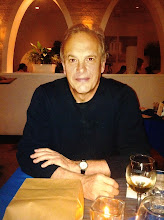At the beginning of autumn in the southern hemisphere, I walk with minha querida hand in hand around the Lagoa Rodrigo de Freitas in Zona Sul. The Lagoa is a constant source of inspiration since my arrival. Its mirror-like calm offers solitude amongst so much noise. The placid water stills the frenzy of the cars crowding the streets.
Lagoa Rodrigo de Freitas
When the Portuguese arrived in the late 1500s, the local Tamoios called the lagoa Piraguá (motionless water). Later, the Portuguese landowners attempted to farm sugar cane on its banks with help from the tribes. Legend tells us that the farmers insisted on converting the natives to Christianity and making the natives wear clothing. They preferred not to and left. In any event, the farms never took root.
In the 1600s the lagoon earned its present name with the marriage of a local bride to a cavalry officer, Rodrigo de Freitas. Presumably the dashing young captain walked hand in hand with his intended on moonlit nights.
photo by Delma Godoy
gassa e logoa
Today, the lagoon serves as a focal point and forms the nexus of several rivers flowing from surrounding underground rivers fed from giant waterfalls in the hills. From the lagoon water spills out past Ipanema to the open sea.
On all sides of its 8k circumference, the lagoon supports a vast recreational community in one of the most densely packed cities on the planet. Each day thousands of runners, walkers, bikers and those on a promenade use every inch of the space. There are private nautical clubs, sports courts and an array of cafes, along with a busy heliport. Since Christmas 1995, a monumental illuminated Christmas tree floats across the mirror d'água, drawing thousands of spectators each night during Christmas.
What many paintings and tourist photographs do not capture is the severe stagnation and pollution below the water line.
This is a longstanding problem. In 1922, it took the Centenary of the Independence to stir enough local interest to renew the lagoon and solve the problem. Inevitably, the lagoon was rebuilt but then it became severely polluted once again over the decades of government negligence. In the 1960s a favela grew up along its banks until a fire destroyed it. Developers moved in with landfill and began to build new luxury apartments and roads.
More construction is set to take place now that the lagoon is expected to become a jewel in the crown during the Summer Games in 2016. This is good news for the private clubs that have established themselves on the lagoon, including the Flamengo Club, the Brazilian Jockey Club, the Garden of Alah and the Naval Club on the island of the Piraquê.
Though a fisherman's colony barely survives near the edges - creating an illusion that all is well in the water - the lagoon is a victim of chronic toxic waste.
Soon after Carnaval 2010, the lagoon began to smell badly. Days later, scores of boats appeared on the water with city workers pulling out 500-800 tons of dead fish. Early reports from the wildlife managers of the lagoon suggested that too much seaweed had robbed the water of oxygen during a period of high temperatures.
After this event, the water of the lagoon overrode its banks during the Easter floods, killing more fish and waterfowl. The lagoon could not revive itself. Nature had been overcome by seepage from old pipes pushing more contaminants into the sludge of the lagoon. The private clubs, restaurants and concessionaires have all contributed by dumping pesticides and other chemicals to keep their grasses and bushes green and bugs at a distance from humans. All it took, perhaps, was a record four degree rise in temperatures over the summer to set off the chain reaction.
The question to ponder for many who frequent the lagoon today: Would you let your child swim in the same water that killed thousands of fish? Would you eat a fish from the lagoon? If not, why should a bird expect to survive here?
photo by Delma Godoy
As I walk around the lagoon I see fewer waterfowl lining the docks. There are fewer flights of ducks and hawks. Only the scavenger birds fly now. If you hear the call of a heron, count yourself lucky. When the fish and birds are gone, you are the only one left on the food chain.











